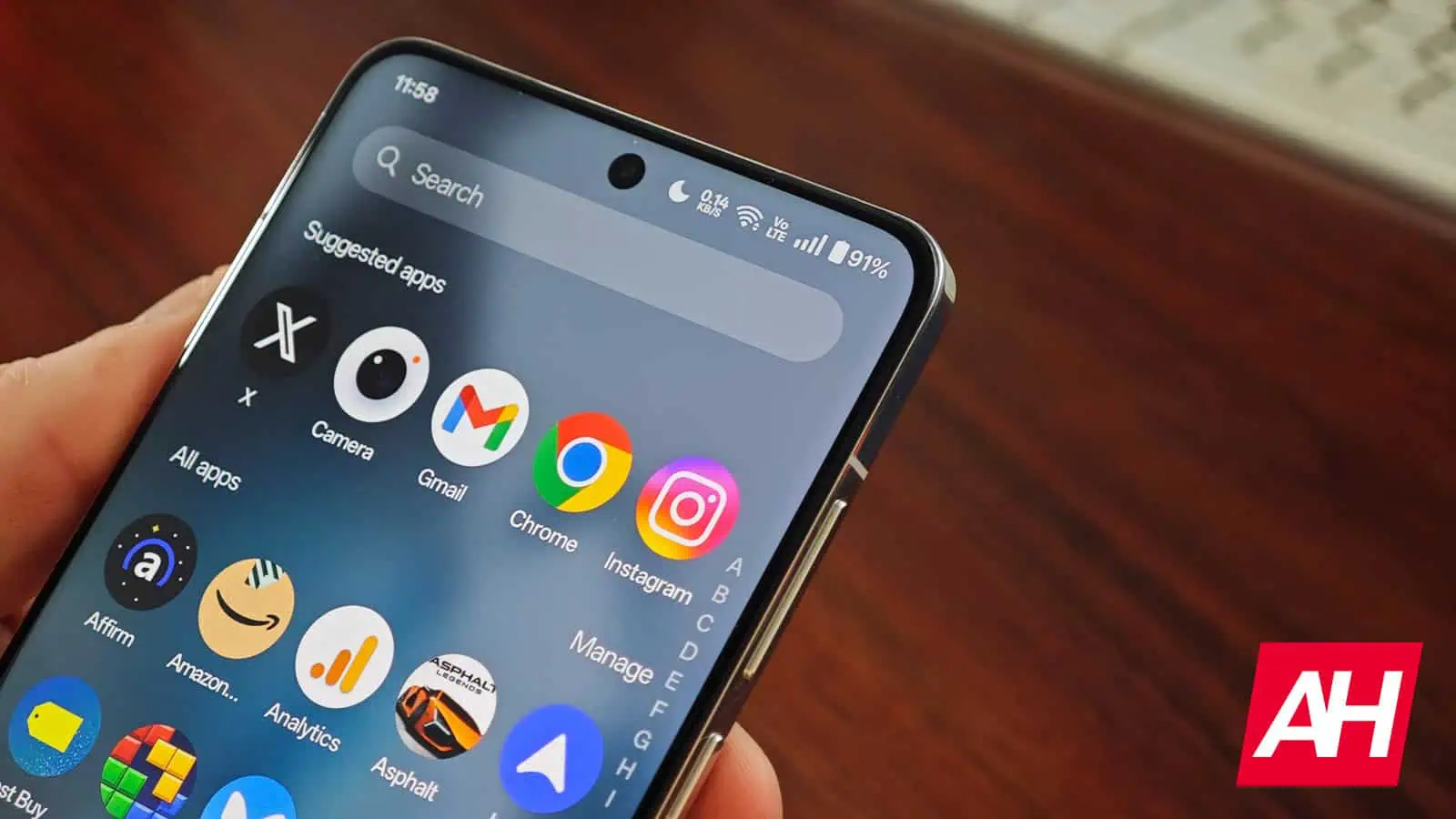The OnePlus 13 is the latest flagship smartphone from OnePlus. Its global model arrived not long ago, and we’re here to compare it to the very best Google has to offer. In other words, this is a OnePlus 13 vs Google Pixel 9 Pro XL comparison. Both of these are large-format Android flagships, and both are quite compelling, but there are quite a few differences between them, actually.
We will first list their specifications, as we usually do, and from there we’ll jump to a number of other categories. We will be comparing their designs, displays, performance, battery life, cameras, and audio output. Let’s see how the best of OnePlus and the best of Google compares, shall we?
Specs
OnePlus 13 vs Google Pixel 9 Pro XL, respectively
– Screen size:
6.82-inch LTPO AMOLED (micro quad-curved aka flat, 120Hz, HDR 10+, 4,500 nits max)
6.8-inch QHD+ OLED (flat, adaptive 120Hz, HDR, 3,000 nits)
– Display resolution:
3168 x 1440
2992 x 1344
– SoC:
Qualcomm Snapdragon 8 Elite
Google Tensor G4
– RAM:
12GB/16GB/24GB (LPDDR5X)
16GB (LPDDR5X)
– Storage:
256GB/512GB/1TB (UFS 4.0)
128GB/256GB/512GB/1TB (UFS 3.1)
– Rear cameras:
50MP (f/1.6 aperture, 23mm lens, 1.12um pixel size, Dual Pixel PDAF, OIS), 50MP (ultrawide, 15mm lens, 120-degree FoV, f/2.0 aperture, 0.64um pixel size, PDAF), 50MP (periscope telephoto, 0.8um pixel size, OIS, PDAF, 3x optical zoom)
50MP (wide, f/1.7 aperture, 1.2um pixel size, OIS, EIS), 48MP (ultrawide, f/1.7 aperture, 123-degree FoV), 48MP (periscope telephoto, f/2.8 aperture, OIS, EIS, 5x optical zoom)
– Front cameras:
32MP (f/2.4 aperture, 0.8um pixel size)
42MP (f/2.2 aperture)
– Battery:
6,000mAh
5,060mAh
– Charging:
100W wired, 50W wireless, reverse wireless, reverse wired (charger not included)
37W wired, 23W wireless (Pixel Stand), 12W Qi wireless, 5W reverse wireless (no charger)
– Dimensions:
162.9 x 76.5 x 8.5/8.9 mm
162.8 x 76.6 x 8.5 mm
– Weight:
210/213 grams
221 grams
– Connectivity:
5G, LTE, NFC, Wi-Fi, USB Type-C, Bluetooth 5.4/5.3
– Security:
In-display fingerprint scanner (ultrasonic) & facial scanning
Ultrasonic in-display fingerprint scanner & facial scanning
– OS:
Android 15 with OxygenOS 15
Android 14
– Price:
$899+
$1,099+
– Buy:
OnePlus 13 (Best Buy)
Google Pixel 9 Pro XL (Best Buy, Google Store)
OnePlus 13 vs Google Pixel 9 Pro XL: Design
The OnePlus 13 comes in two variants, design-wise. You can get it in a metal + glass combo, or metal + vegan leather combo, it’s up to you. The Google Pixel 9 Pro XL, on the flip side, is available only in glass + metal combination. Both phones use aluminum for their frames. Needless to say, the vegan leather variant of the OnePlus 13 is the least slippery one of all these combinations.
These two phones do offer notably different designs. The OnePlus 13 has a quad micro-curved design on both its front and back. In other words, its glass on the front is curved on all four sides, but only towards the edges, and only a little bit, the display itself is flat. The backplate mimics the front, it’s proportional. The display on the front of the Pixel 9 Pro XL is flat, while the same goes for the glass on the front and the back. The in-hand feel is notably different because of this.
Both devices do include a flat frame all around, though they’re both rather comfortable to hold. That frame does not cut into your hand or anything like that. You’ll notice a centered display camera hole on the front, on both devices. The one on the Pixel 9 Pro XL is positioned a bit lower, though. Both phones have thin bezels, and those bezels are also uniform. They both have power/lock and volume up and down buttons on the right-hand side, but the positioning is different. The power/lock button sits above the volume rocker buttons on the Pixel 9 Pro XL, while it’s the other way around on the OnePlus 13. The OnePlus 13 also has an alert slider on the left.
Their camera islands are notably different too. The one on the OnePlus 13 sits in the top-left corner, and it’s round. The Pixel 9 Pro XL has a pill-shaped camera module that sits horizontally at the top of the phone’s backplate. The OnePlus 13 is lighter than the Pixel 9 Pro XL, while it also offer better water resistance. It comes with IP68 and IP69 rating, while the Pixel 9 Pro XL has an IP68 certification. Both phones offer great design, but… considerably different at the same time.
OnePlus 13 vs Google Pixel 9 Pro XL: Display
You’ll find a 6.82-inch 3168 x 1440 LTPO AMOLED display on the OnePlus 13. That panel has a quad micro-curved setup, with curved glass and flat display. It offers an adaptive refresh rate from 1 to 120Hz, and supports Dolby Vision and HDR10+. HDR Vivid is also supported, and the peak brightness goes up to 4,500 nits. The display aspect ratio is around 90%, while the Ceramic Guard protects the display.

The Pixel 9 Pro XL, on the other hand, has a 6.8-inch 2992 x 1344 LTPO OLED display. That panel is flat, and it supports an adaptive refresh rate (1-120Hz). HDR10+ content is supported here, and the peak brightness the phone can offer is 3,000 nits. The screen–to-body ratio is around 88%, while the display aspect ratio here is 20:9. This panel is protected by the Gorilla Glass Victus 2.
Both of these displays are great, actually, and you should not really be worried about either one. Both of them are vivid, have great viewing angles, and get more than bright enough when you need them. They also offer good touch response. The OnePlus 13’s panel can technically get brighter, but both get bright enough. That panel also has high-frequency PWM dimming, in case that makes a difference for you. Otherwise, you’re good to go with either one.
OnePlus 13 vs Google Pixel 9 Pro XL: Performance
OnePlus opted to use the latest flagship SoC from Qualcomm, the Snapdragon 8 Elite. That is a 3nm chip. In addition to that, the company included up to 16GB of LPDDR5X RAM globally, and up to 24GB in China. UFS 4.0 flash storage is also used. The Pixel 9 Pro XL, on the flip side, is fueled by the Google Tensor G4 processor. That is a 4nm chip, and the company offers up to 16GB of LPDDR5X RAM and UFS 3.1 flash storage here.
The OnePlus 13 has the more powerful chip, without a doubt. It also offers faster flash storage to go along with it. So yes, it’s technically a more powerful smartphone. The thing is, the Pixel 9 Pro XL can keep up. That Tensor chip works great in collaboration with that phone, and the performance is great. Day-to-day performance is outstanding on both smartphones, in every way, shape and form. Yes, the OnePlus 13 may feel a bit snappier, but that’s about it. Both are very fast and fluid, regardless of what you’re doing.
In terms of gaming, well, that’s where you’ll notice the difference, but only if you’re playing truly demanding games. Yes, the OnePlus 13 will be able to handle a more intense graphical demands, but the Pixel 9 Pro XL can handle its own. You may have to lower the settings on some games a little bit, but the Pixel 9 Pro XL can handle gaming just fine. Still, if you play a lot of games, we’d say the OnePlus 13 is the better choice.
OnePlus 13 vs Google Pixel 9 Pro XL: Battery
A 6,000mAh silicon-carbon battery sits inside the OnePlus 13. The Google Pixel 9 Pro XL, on the other hand, has a 5,060mAh battery. This is a considerably difference in battery capacity, and even though the Pixel 9 Pro XL does offer really good battery life, the OnePlus 13 is on a whole other level. The OnePlus 13 is actually one of the best smartphones for battery life out there, when it comes to mainstream high-end devices especially.
We’ve been able to high truly high screen-on time levels with that smartphone. Getting to 10 hours of screen-on-time was not really a problem, while there was still juice left in the tank, quite a bit of it. With the Pixel 9 Pro XL we’ve been able to cross the 7-hour screen-on-time level, even the 8-hour level at times, but it’s easy to see the difference in battery life prowess between these two phones. Do note that your mileage may vary, though, of course.
The OnePlus 13 also takes the cake when it comes to charging. It supports 100W wired, 50W wireless, 10W reverse wireless, and 5W reverse wired charging. The Pixel 9 Pro XL supports 37W wired, 23W wireless (with Pixel Stand), 12W Qi wireless, and reverse wireless charging. Do note that neither phone comes with a charger in the box, though.
OnePlus 13 vs Google Pixel 9 Pro XL: Cameras
Both devices have three cameras on the back. The hardware is different, though, and so is the performance. The OnePlus 13 has a 50-megapixel main camera (1/1.43-inch sensor size), a 50-megapixel ultrawide unit (1/2.75-inch sensor size, 120-degree FoV), and a 50-megapixel periscope telephoto camera (1/1.95-inch sensor size, 3x optical zoom).
![]()
The Google Pixel 9 Pro XL, on the other hand, has a 48-megapixel main camera (1/1.31-inch sensor size), a 48-megapixel ultrawide camera (1/2.55-inch sensor size, 123-degree FoV), and a 48-megapixel periscope telephoto camera (1/2.55-inch sensor size, 5x optical zoom). OnePlus also has Hasselblad’s expertise on its side.
The end results are interesting. They do provide notably different results, as we’ve indicated in our camera comparison. The Pixel 9 Pro XL tends to struggle with shadows when in direct comparison with the OnePlus 13. The shots from the OnePlus 13 tend to look more natural too, and there’s often more detail when using the periscope telephoto camera. The Pixel 9 Pro XL also tends to provide images with cooler tones. In low light, it becomes even more apparent that the OnePlus 13 photos look closer to real life. The Pixel 9 Pro XL tends to do better with video recording, though.
Audio
Both of these smartphones have stereo speakers included. The ones on the OnePlus 13 are a bit louder, though, but the difference is not all that noticeable. The sound quality coming from both sets of speakers is good, and they’re well-balanced.
Neither phone has an audio jack, though. You can connect your wired headphones via their Type-C ports, if you want. Alternatively, Bluetooth 5.4 is available on the OnePlus 13, while Bluetooth 5.3 comes included with the Google Pixel 9 Pro XL.









